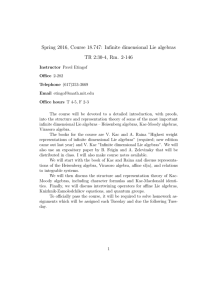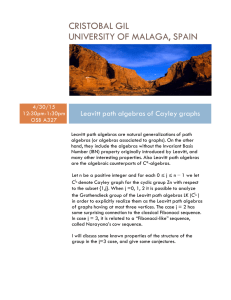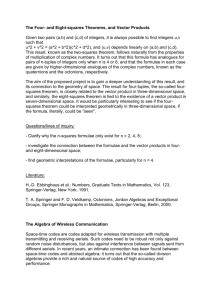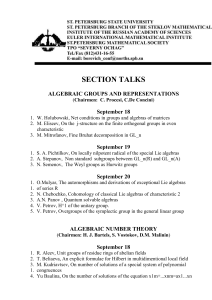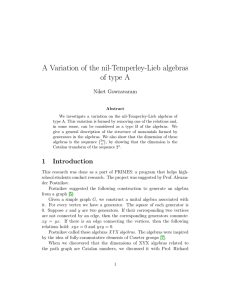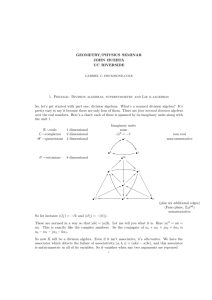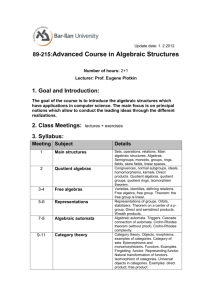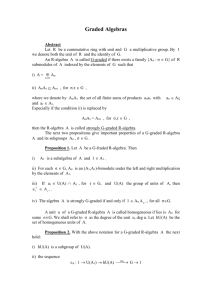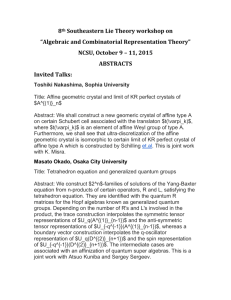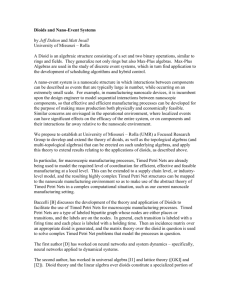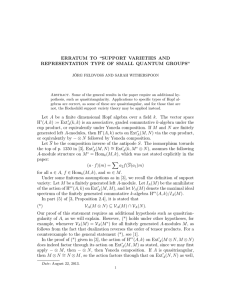UNIVERSITY OF KENT
advertisement
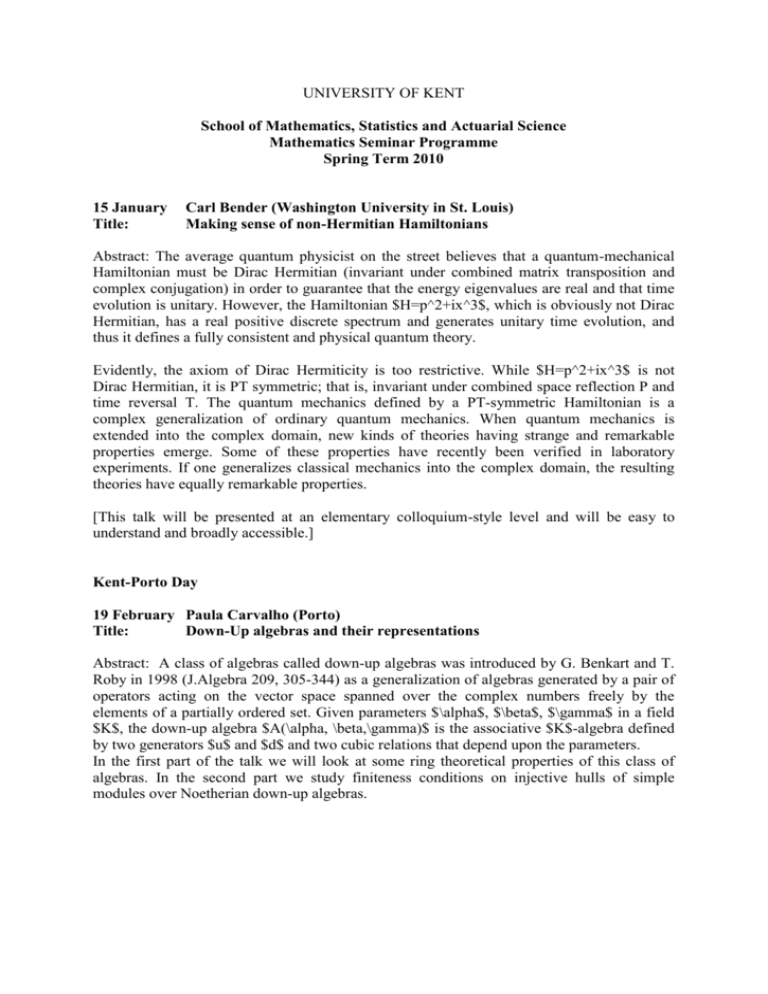
UNIVERSITY OF KENT School of Mathematics, Statistics and Actuarial Science Mathematics Seminar Programme Spring Term 2010 15 January Title: Carl Bender (Washington University in St. Louis) Making sense of non-Hermitian Hamiltonians Abstract: The average quantum physicist on the street believes that a quantum-mechanical Hamiltonian must be Dirac Hermitian (invariant under combined matrix transposition and complex conjugation) in order to guarantee that the energy eigenvalues are real and that time evolution is unitary. However, the Hamiltonian $H=p^2+ix^3$, which is obviously not Dirac Hermitian, has a real positive discrete spectrum and generates unitary time evolution, and thus it defines a fully consistent and physical quantum theory. Evidently, the axiom of Dirac Hermiticity is too restrictive. While $H=p^2+ix^3$ is not Dirac Hermitian, it is PT symmetric; that is, invariant under combined space reflection P and time reversal T. The quantum mechanics defined by a PT-symmetric Hamiltonian is a complex generalization of ordinary quantum mechanics. When quantum mechanics is extended into the complex domain, new kinds of theories having strange and remarkable properties emerge. Some of these properties have recently been verified in laboratory experiments. If one generalizes classical mechanics into the complex domain, the resulting theories have equally remarkable properties. [This talk will be presented at an elementary colloquium-style level and will be easy to understand and broadly accessible.] Kent-Porto Day 19 February Paula Carvalho (Porto) Title: Down-Up algebras and their representations Abstract: A class of algebras called down-up algebras was introduced by G. Benkart and T. Roby in 1998 (J.Algebra 209, 305-344) as a generalization of algebras generated by a pair of operators acting on the vector space spanned over the complex numbers freely by the elements of a partially ordered set. Given parameters $\alpha$, $\beta$, $\gamma$ in a field $K$, the down-up algebra $A(\alpha, \beta,\gamma)$ is the associative $K$-algebra defined by two generators $u$ and $d$ and two cubic relations that depend upon the parameters. In the first part of the talk we will look at some ring theoretical properties of this class of algebras. In the second part we study finiteness conditions on injective hulls of simple modules over Noetherian down-up algebras. 19 February Christian Lomp (Porto) Title: Ring theoretical aspects of weak Hopf action Abstract: Groupoid actions are typical examples of weak Hopf algebra actions that are not ordinary Hopf actions. Looking at actions as certain operators acting on an algebra, we extend known result on Hopf actions to this setting. In particular we get new insight into the existence of non-trivial central invariant elements in non-trivial H-stable ideals of subdirect products of certain H-prime module algebras satisfying a polynomial identity by considering an adapted version of Kaplansky's theorem and by introducing a Brown-McCoy radical for H-module algebras. We extend Puczylowski and Smoktunowicz's description of the BrownMcCoy radical of a polynomial ring to module algebras and apply our result to left bialgebroid measurings, gradings and involutions. Following Linchenko and Montgomery's arguments we show that the smash product of a semiprime module algebra, satisfying a polynomial identity and an involutive weak Hopf algebra is semiprime. 19 February Samuel Lopes (Porto) Title: Automorphisms of certain generalised Weyl algebras Abstract: We will introduce generalised down-up algebras, as defined by Cassidy and Shelton. As the name indicates, they naturally generalise the down-up algebras of Benkart and Roby, whose definition was motivated by algebraic properties of the down and up operators of certain posets. These algebras, when Noetherian, are part of a wider class introduced by Bavula, the so-called Generalised Weyl Algebras (GWA). Automorphism groups of GWA's were studied by Bavula and Jordan in the case that the base ring is a polynomial algebra in one variable. In this joint work with Paula Carvalho, we determine the automorphism groups of conformal Noetherian generalised down up algebras, under some restrictions on the parameters. These provide instances of automorphism groups of GWA's in the case that the base ring is a polynomial algebra in two variables. 2 March Title: Mike Keane (Wesleyan College Connecticut / Leiden) The binomial transformation. Abstract: This mapping from the unit interval to itself is also known as the Pascal transformation, and has a simple definition using cutting and stacking of intervals. In the lecture I can give an interesting argument for its ergodicity, based on the Lebesgue density theorem and recurrence of one-dimensional random walk, and discuss the question, still open, as to whether it is mixing - even weak mixing is unknown. 16 March Title: David Berman (Queen Mary) Interacting Branes in M-theory Abstract: This is an introductory review on M-theory, its branes and recent developments in the interacting theory of branes.
